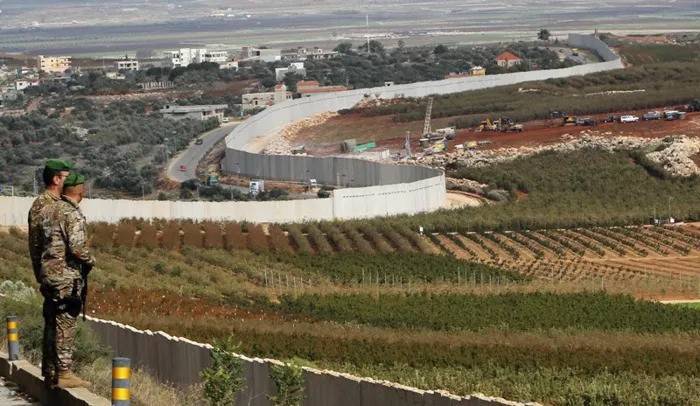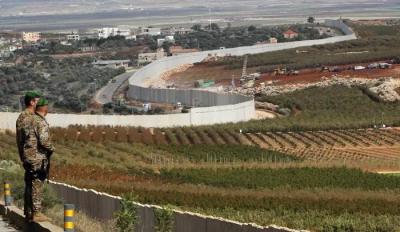The economic crisis plaguing Lebanon and the lack of a comprehensive settlement for the southern war crisis are two main obstacles preventing the deployment of an additional 10,000 soldiers from the army in the South Litani area of the country. The army's deployment is essential for fulfilling its obligations under Resolution 1701, which has seen increased local and international calls for its implementation due to the ongoing conflict between Hezbollah and the Israeli army in the south.
In the past three months, there have been heightened calls for deploying 10,000 additional Lebanese soldiers at the borders and the withdrawal of Hezbollah fighters, in accordance with Resolution 1701. However, these proposals are conditional upon reaching a settlement that ends the current conflict in the south, as stated by Lebanese sources familiar with ongoing international efforts. The sources clarified that no settlement has been reached yet, and no international decisions have been made to facilitate the recruitment of additional soldiers. Moreover, the Lebanese government has not issued a decision to open recruitment, placing all circulating information within the realm of proposals.
The Lebanese sources following the negotiations for a truce at the southern border excluded the possibility of any international decision before a comprehensive settlement is achieved. They emphasized that a truce at the border is a political decision that must be made to ensure the stabilization of security, followed by implementing the other details associated with the primary decision that needs to be taken at the political level.
International efforts to end the mutual shelling between Hezbollah and the Israeli army have so far failed, including calls for a full application of Resolution 1701, which entails completing the deployment of the Lebanese army at the borders. This is part of a decision made unanimously by the Lebanese government on August 7, 2006, which called for the deployment of a Lebanese armed force of 15,000 soldiers in southern Lebanon alongside the withdrawal of the Israeli army to behind the Blue Line. Security Council Resolution 1701 welcomed the Lebanese decision and requested additional assistance for the United Nations Interim Force in Lebanon (UNIFIL) as needed, to facilitate the entry of the Lebanese armed forces into the region.
While Army Commander General Joseph Aoun is making significant efforts to secure the needs of the military to ensure the continuity of the institution and the execution of its tasks, Lebanon has not received any international signals regarding new support for the army, allowing it to complete its deployment and implement the decisions made in 2006. Military sources in Lebanon stated to "Asharq Al-Awsat" that the army leadership has not been informed of any international decision regarding any country’s readiness to support the military infrastructure in the south.
In recent years, efforts to continue deploying the army have faced the inability to recruit additional soldiers. Lebanon claims that it cannot ensure the deployment of more than 5,000 soldiers, currently stationed in the south, but is willing to recruit 10,000 new soldiers if financial assistance is secured. The inability to secure supplies and salaries for these soldiers has also been a roadblock. Notably, the United States currently covers 90% of the army's armaments and provides monthly financial aid, alongside other partners for the Lebanese military.
Informed Lebanese sources regarding military affairs told "Asharq Al-Awsat" that the existing financial assistance of $100 per soldier monthly will cease within two months if new aid is not secured. This assistance has been provided to 70,000 military personnel for the past 11 months, alongside their salaries. This aid stems from U.S. assistance for six months, which was extended by one additional month (labeled a livelihood support program) and has been fully disbursed, in addition to Qatari assistance for six months, four months of which have been paid, leaving only enough for two more months. If conditions are not secured for its continuation, soldiers will lose this monthly $100 salary supplement in two months.
The army receives aid from a wide range of friendly countries, which is divided into two types: the first includes U.S. assistance provided through annual programs, while the second consists of temporary aid from the U.S. and other countries with friendly relations with the Lebanese army. The United States ranks as the largest contributor of significant aid to the Lebanese army, totaling over $3 billion since 2005. This support is included in the U.S. federal budget under the Department of Defense and is implemented automatically through the department or the presidency without complications, according to former Lebanese ambassador to Washington Dr. Riyad Tabara, who asserts that the U.S. is interested in supporting the Lebanese army, viewing it as a politically protected institution.
Regarding potential legal obstacles preventing support for a wider deployment outside the designated budget, Tabara indicated in a statement to "Asharq Al-Awsat" that any decision related to the Department of Defense's spending can be made by the U.S. president through a framework decision without referring to Congress, based on the authorities granted to the U.S. president in this area.




